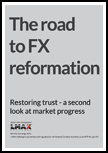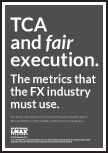Shared Article from mason.gmu.edu/~rhanson
Government regulators often ban products they claim to be of especially low quality….
Robin Hanson @ mason.gmu.edu
So imagine a broad new law, perhaps a constitutional amendment, which prohibits regulators from banning any product without substantial use externalities. Instead, imagine a single standard icon, perhaps a skull and crossbones, a dead cat, or a big
BAD, which saysWe regulators would have banned this product, except that’s not constitutional now. Don’t buy it.(Further imagine a small educational campaign to ensure that everyone understands this icon.)With ideal regulators, this new label should convey as much information as banning would have, and so roughly rational consumers should be no worse off. If regulators are far from ideal, the worst that regulators can do is just waste their funding (since consumers can always ignore them). And in either case, consumer liberty would be expanded.
. . . If consumer irrationality is the real issue here, then I sure wish ban advocates would describe their theory of consumer mistakes in more detail, so we could do some experiments to test those theories. It is also not clear why regulators should be more rational, or that irrational voters would support bans by regulators whose labels they wouldn’t believe.
–Robin Hanson, The
Would Have BannedLabel
June 19, 1996.
Of course, really laws are the wrong way to go about just about anything, and there’s no good reason why it should be any business of the law to make producers print Banned In The Beltway
tags on their products, at least not any more reason than they should be forced to print any other palooka’s opinions about their products. But, is there any solid, non-control-freak argument for thinking that this solution has any defects that would make it less desirable than the current prohibitionist approach to regulating low-quality products? If so, what’s the argument?




